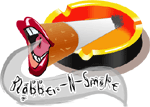Where's my winter?!? As Joey Ramone once said, "It ain't Christmas if there ain't no snow," and let me add that it sure as hell ain't February! Okay, for those of you in the TIG's hometown of Seattle, I realize that the entire year is a seasonless succession of rainy September days. But I'm an east coast boy, and by mid-Feb, I expect to have lived through a few pain-in-the-ass snows. Instead, we've had one minor dusting and a bunch of unseasonably warm, 50-degree days. So to conjure up a bit of wintry chill, I give you two icy new releases, and one for those who have already given up until next year. Might as well be spring. Bah.
The nasty glare emanating from his grizzled mug on the back cover of East Coast Cool (Omnitone) makes trumpeter John McNeil look more like Charles Bukowski than Gerry Mulligan, but maybe that's the point. Though the title of McNeil's CD evokes the laid-back hip of Mulligan's West Coast Cool sound, that icy stare reminds that across the country, being cool has an edge. It's easy to stretch out and blow relaxed tenor lines in the sunny expanses of California, but New York cats have to deal with bitter cold and crowded, tightly-packed environs. When McNeil was hired to arrange a tribute concert to Mulligan after the baritone saxophonist's death, he began to study his compositional techniques, leading to this application of his approaches to McNeil's brand of free jazz. McNeil enlisted Allan Chase to play Mulligan to his own Chet Baker, and the ensuing CD posits a median point between that classic duo and the Coleman/Cherry pairing. The pace and husky tone often evoke the West Coast sound, but they move with the angularity of a taxi cab navigating a city grid, and with a tension that suggests that the musician's minds are moving at twice the speed of the music, anxious to get out to the next smoke break. And where the left coasters wore genuine smiles, contently playing upbeat major-key tunes, McNeil sneers, exhibiting his snarky sense of humor on a playful run through "Schoenberg's Piano Concerto". An intriguing combination of styles, and an experiment in attitudes in conflict. {8.5}
Though only three of The Distance's ten tracks are co-credited to the full trio of musicians who perform it, all ten hinge far more on interaction than on composition. Recorded during the 2004 Vancouver International Jazz Festival, this concert was the first time that percussionist Dylan van der Schyff, pianist Chris Gestrin, and guitarist Ben Monder had played together, though their simpatico styles and open ears more than compensate for the lack of familiarity. The Songlines release bears more than a trace of the ECM sound, from the delicate improvisation to the cavernous spaciousness of the sound. There is a definite minor-key tone to the music here, and despite the festival's occurrence in mid-June, one can't help but imagine wintry landscapes and overcast skies. While the trio at times drive one another forward, especially when Monder gets on a gnarly tear (witness his distorted grimace of a solo on "Dark Engine"), the pieces don't so much build and release as ebb and flow, waxing and waning like the tide while maintaining an electric tension – you can almost hear the concentration. This is a mesmerizing CD, the sound of three cerebral musicians pooling their intuition to create aural landscapes where every note, and the spaces in between, needs to be placed in exactly the right spot. It is a space worth exploring. {8}
When Philadelphia vocalist Meg Clifton sings "Here Comes the Sun," her voice virtually conjures the rays of light breaking over the horizon. Considering her CD also includes "You Must Believe In Spring" and "Up Jumped Spring," the sunny disposition can be no accident. Only in her late 20s, Clifton's independently-released You're A Sweetheart is a timeless set of standards, set to a gentle swing that is as unhurried as her delivery. Clifton often partners with fellow singer Mary Ellen Desmond for tributes to Peggy lee and Rosemary Clooney, and her own approach echoes those influences, cutting straight to the emotional core of a lyric with little adornment. She has a girl-next-door sultriness about her, an unstudied joy in the mere fact of the music that comes through in every context, lending a warm exuberance regardless of the setting. She is backed on this, her first CD, by a stellar group of Philadelphia mainstays and friends-of-Philly: trumpet-for-every-occasion John Swana, guitarist Peter Bernstein, bassist Lee Smith, drummer Dan Monaghan, and saxophonist Eric Alexander, all keepers of the traditionalist flame. Together, they take a relaxed stroll through a set of well-worn favorites, finding little new but much that is fresh. {7}
Blabber n' Smoke is Shaun's attempt to build a nice little home for jazz within the otherwise rocking confines of TIG. Each (optimistically) regular column will gather together reviews of several new releases, maintaining the usual 11-scale review meter.
